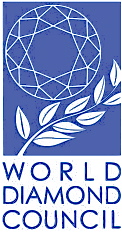|
 JUNE 30, 2014 – The World Diamond Council has issued a warning that, despite the Administrative Decision of the Kimberley Process of May 23, 2013, which ordered the temporary suspension of trading in diamonds from the Central African Republic (CAR), production of diamonds in that country is continuing and there is evidence of diamonds from the CAR reaching the markets. JUNE 30, 2014 – The World Diamond Council has issued a warning that, despite the Administrative Decision of the Kimberley Process of May 23, 2013, which ordered the temporary suspension of trading in diamonds from the Central African Republic (CAR), production of diamonds in that country is continuing and there is evidence of diamonds from the CAR reaching the markets.
The WDC seeks to reiterate that, until such date that the temporary suspension is lifted, trade in rough diamonds from the CAR is considered illicit, and members of the industry who are found to be involved in such activities will be subject to sanctions agreed to by the World Diamond Council and the diamond exchanges affiliated to the World Federation of Diamond Bourses.
The WDC urges any member of the diamond industry of who is aware of such activity taking place to report it immediately to the Kimberley Process Authorities in the country in which he or she is operating.
“This is an issue of critical importance,” stated Edward Asscher, President of the World Diamond Council. “Illicit trading in diamonds from the CAR not only undermines the efforts of the international community to restore peace in the country, but it challenges the reputation of the Kimberley Process Certification Scheme and the efforts of our industry, government and civil society to eliminate the trade in conflict diamonds.”
The Kimberley Process is instituting measures to monitor illicit trafficking in diamonds from the CAR. The suspension of trade in diamonds from that country will continue until such time that a KP review mission can be carried out, so as to ascertain that minimum KPCS standards are being maintained. Given the current security situation in the CAR, such a mission is unlikely in the immediate future.
|

